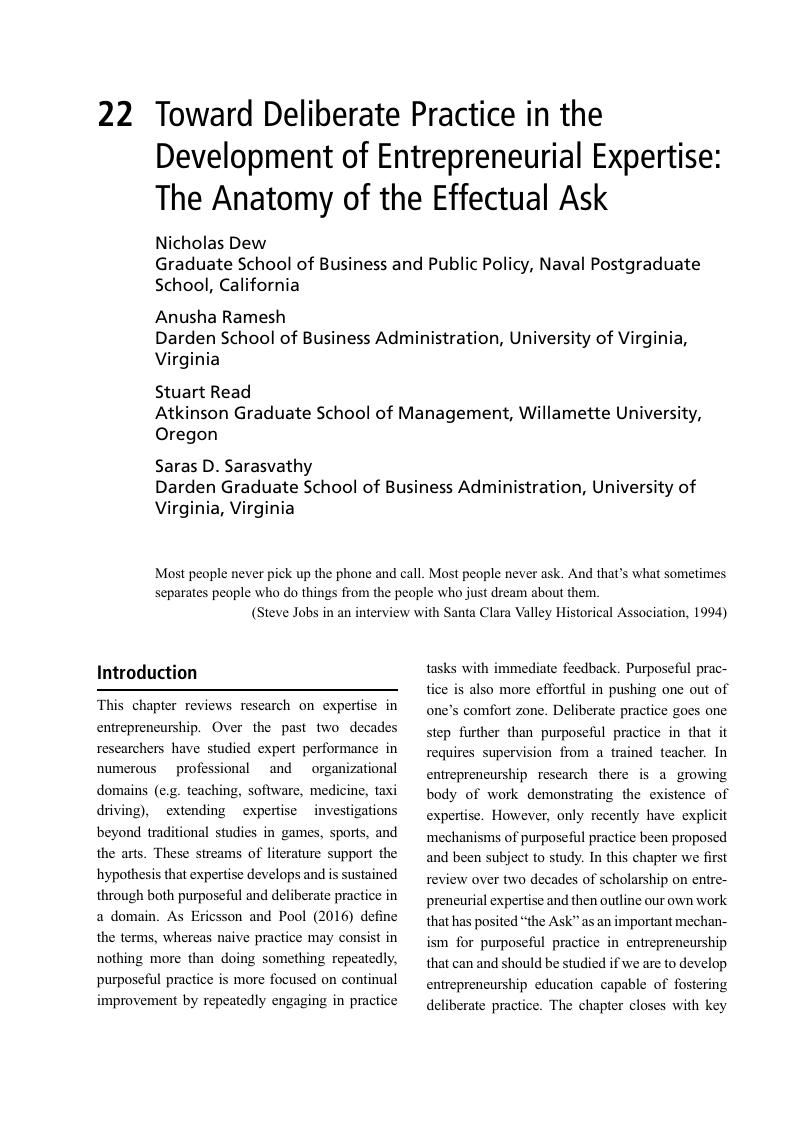Book contents
- The Cambridge Handbook of Expertise and Expert Performance
- The Cambridge Handbook of Expertise and Expert Performance
- Copyright page
- Contents
- Notes on Contributors
- Acknowledgments
- Part I Introduction and Perspectives
- Part II Overview of Approaches to the Study of Expertise: Brief Historical Accounts of Theories and Methods
- Part III Methods for Studying the Structure of Expertise
- Part IV Methods for Studying the Acquisition and Maintenance of Expertise
- Part V.I Domains of Expertise: Professions
- 19 Expertise in Medicine and Surgery
- 20 Expertise and Transportation
- 21 Expertise in Professional Design
- 22 Toward Deliberate Practice in the Development of Entrepreneurial Expertise: The Anatomy of the Effectual Ask
- 23 Professional Writing Expertise
- 24 Expertise and Expert Performance in Teaching
- 25 Expert Professional Judgments and “Naturalistic Decision Making”
- 26 Skilled Decision Theory: From Intelligence to Numeracy and Expertise
- 27 What Makes an Expert Team? A Decade of Research
- Part V.II Domains of Expertise: Arts, Sports, Games, and Other Skills
- Part VI Generalizable Mechanisms Mediating Types of Expertise
- Part VII General Issues and Theoretical Frameworks
- Index of Subjects
- References
22 - Toward Deliberate Practice in the Development of Entrepreneurial Expertise: The Anatomy of the Effectual Ask
from Part V.I - Domains of Expertise: Professions
Published online by Cambridge University Press: 10 May 2018
- The Cambridge Handbook of Expertise and Expert Performance
- The Cambridge Handbook of Expertise and Expert Performance
- Copyright page
- Contents
- Notes on Contributors
- Acknowledgments
- Part I Introduction and Perspectives
- Part II Overview of Approaches to the Study of Expertise: Brief Historical Accounts of Theories and Methods
- Part III Methods for Studying the Structure of Expertise
- Part IV Methods for Studying the Acquisition and Maintenance of Expertise
- Part V.I Domains of Expertise: Professions
- 19 Expertise in Medicine and Surgery
- 20 Expertise and Transportation
- 21 Expertise in Professional Design
- 22 Toward Deliberate Practice in the Development of Entrepreneurial Expertise: The Anatomy of the Effectual Ask
- 23 Professional Writing Expertise
- 24 Expertise and Expert Performance in Teaching
- 25 Expert Professional Judgments and “Naturalistic Decision Making”
- 26 Skilled Decision Theory: From Intelligence to Numeracy and Expertise
- 27 What Makes an Expert Team? A Decade of Research
- Part V.II Domains of Expertise: Arts, Sports, Games, and Other Skills
- Part VI Generalizable Mechanisms Mediating Types of Expertise
- Part VII General Issues and Theoretical Frameworks
- Index of Subjects
- References
Summary

- Type
- Chapter
- Information
- The Cambridge Handbook of Expertise and Expert Performance , pp. 389 - 412Publisher: Cambridge University PressPrint publication year: 2018
References
- 2
- Cited by

